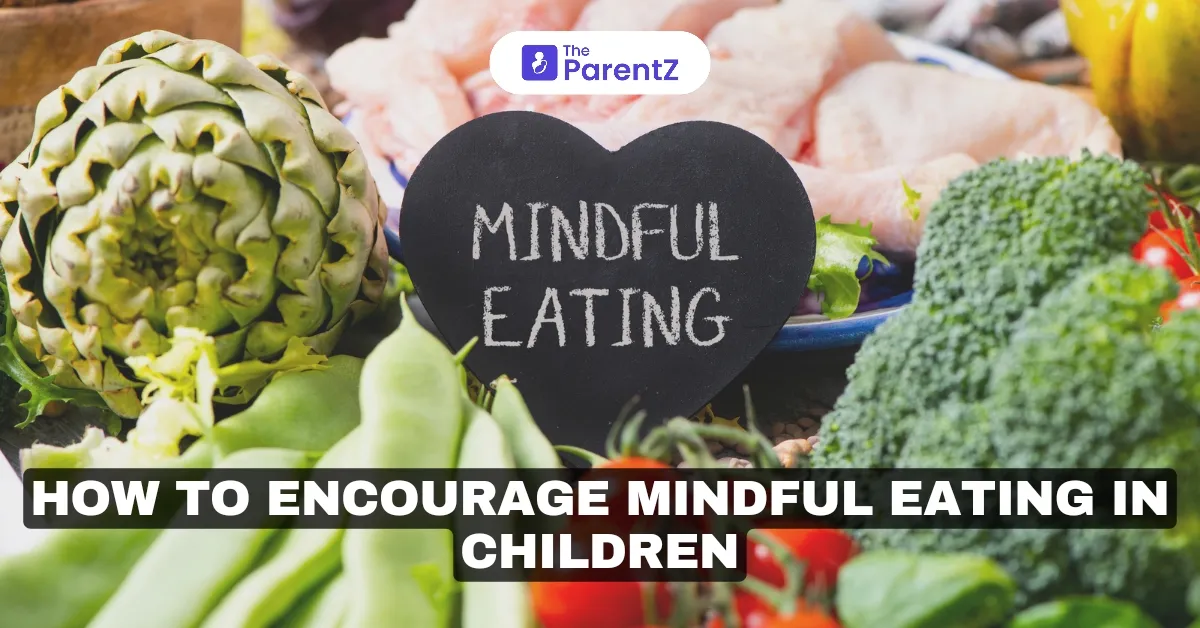Mindful eating is a trend that is recently gaining traction, especially among the health-conscious parents who are just looking for a healthy relationship between their kids and food.
But what exactly does it mean? In simple words, mindful eating focuses on teaching kids the experience of eating: the taste, smell, texture, and even the emotions connected to food. With this, your kids will actually start to find the magic in each bite.
But nowadays, when cheesy burgers and energy drinks have stolen the hearts of kids, encouraging mindful eating is certainly not that easy. But we did not say it wasn’t possible. In fact, it’s necessary! Even a study published in the Appetite Journal states that mindful eating habits are associated with reduced BMI in kids.
So how can you actually insist your children practice mindful eating habits?
Top 5 Tips To Encourage Mindful Eating Habits in Kids
From setting your own example to encouraging trying out new foods, read this article to explore some of the best tips to encourage mindful eating in children.
Let Them Be The Part of Meal Prep
There’s no better way to make kids appreciate the food than by making them a part of meal preparation. Whether it's as simple as washing the dishes or stirring a pot, do not hesitate to call out your little one to help you in the kitchen.
The fact is, when kids know what goes into their meals, they are more interested in eating and understanding the different flavors.
No food is ‘good’ or ‘bad.’
One of the most common mistakes that parents make is labeling the food as good or bad. So the next time you say candies are bad and broccoli is good, instead encourage them realize every food item is a part of a balanced diet.
Moderation is indeed better than restriction. This is because children who associate guilt with certain foods tend to develop unhealthy eating habits later in life.
Gratitude for Food
Mindful eating is not about slow eating. It is also about appreciating the journey of food from farm to your table. Therefore, it is important to teach your kids to be grateful for the food they eat.
Let them know how farmers put in their efforts to grow fruits and vegetables or the effort it takes to cook the meals.
So when they will actually realize the value behind their food, they will certainly respect their mealtime.
Trying Out New Foods
Although kids are curious by nature, they are often cautious when it comes to trying out new foods. Therefore, it's time to turn their tasting experience into a mindful one. You can play a game where you ask them to describe the taste, smell, and texture of something new.
This is because the more they think about the different aspects of the food, the more engaged they will be when it comes to trying out new foods.
What’s more? The mealtime no longer feels like a regular chore.
The Slow Eating Challenge
Some kids tend to rush through meals. In such situations, the slow eating challenge approach is the way to go.
Dare them to take the smallest bites possible or chew each mouthful for a certain number of times. This way it turns into a fun game where whoever finishes the last gets the reward!
Takeaway
Mindful eating is not just restricted to eating healthy but also extends to the lifelong appreciation for food and health. While it might take time and lots of patience, mindful eating is a journey worth every bite. It's never too late to develop the skills. It’s your sign to teach your kids to slow down and savor the moment.








Be the first one to comment on this story.